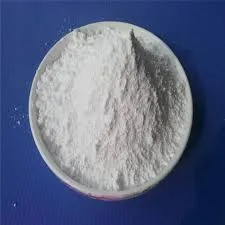Understanding the Meaning of API in Pharmaceuticals
The pharmaceutical industry is an intricate tapestry woven from various elements, each playing a critical role in the development, production, and distribution of medicines. Among these elements, the term API, which stands for Active Pharmaceutical Ingredient, holds significant importance. Understanding what APIs are and their role in pharmaceuticals can provide valuable insight into how medicines are formulated and the complexities involved in their production.
What is an API?
An Active Pharmaceutical Ingredient (API) is the substance in a pharmaceutical drug that is biologically active. This means that it is the component responsible for the therapeutic effect of the medication. When a drug is consumed, either through oral, injectable, or topical methods, it is the API that interacts with the body’s biological systems to produce the desired pharmacological effect.
For example, in a pain-relief medication like ibuprofen, ibuprofen itself is the API which reduces inflammation and alleviates pain. Other ingredients in the formulation may serve as excipients substances that facilitate the delivery of the API, stabilize the drug, or enhance its absorption, but they do not have therapeutic effects on their own.
The Role of APIs in Medicine
APIs are foundational to the drug development process. Once a disease target has been identified and a potential therapeutic effect has been hypothesized, pharmaceutical scientists turn their attention to the API. The development of an API typically involves
1. Discovery and Synthesis This phase can be lengthy and involves both the identification of potential API candidates and the synthesis of chemical compounds. Scientists may use various techniques, including organic chemistry and biochemistry, to create APIs.
2. Testing and Optimization After synthesis, the new APIs undergo rigorous testing to assess their efficacy, safety, and pharmacokinetics (the study of how the drug is absorbed, distributed, metabolized, and excreted in the body). This helps to optimize the structure of the API for maximum therapeutic effect with minimal side effects.
3. Regulatory Approval Before an API can be used in a drug product, it must be approved by regulatory bodies such as the Food and Drug Administration (FDA) in the United States or the European Medicines Agency (EMA) in Europe. This approval process involves submitting comprehensive data on the API, including its manufacturing process, quality control, and clinical trial results.
api meaning pharma

The Manufacturing of APIs
The production of APIs is a highly controlled and regulated industry. APIs are typically manufactured in facilities that comply with Good Manufacturing Practice (GMP) regulations to ensure quality and safety. The manufacturing process involves several steps
- Raw Material Procurement High-quality raw materials are essential for the production of APIs. Suppliers must be vetted to ensure that they meet the necessary standards.
- Chemical Synthesis or Extraction Depending on the API, this step can involve complex chemical reactions or the extraction of compounds from natural sources.
- Purification After synthesis or extraction, the API must be purified to remove any impurities or residual solvents that could affect its safety or efficacy.
- Characterization Advanced techniques, such as spectroscopy and chromatography, are used to characterize the purity and quality of APIs.
The Future of APIs in Pharmaceuticals
As the pharmaceutical landscape evolves, the need for innovative APIs continues to grow. There is a significant push towards personalized medicine, which requires the development of APIs tailored to individual patient needs. Additionally, advancements in biotechnology and genetic engineering are paving the way for new classes of APIs, such as monoclonal antibodies and gene therapies that hold the potential to treat previously incurable diseases.
In conclusion, APIs are the cornerstone of pharmaceutical development and are essential in delivering the therapeutic benefits of medications to patients. Understanding their role enhances our appreciation for the complexities involved in drug production and the rigorous processes that ensure the safety and efficacy of pharmaceuticals. As research continues to advance, the landscape of APIs will undoubtedly expand, offering new opportunities and solutions to address global health challenges.

